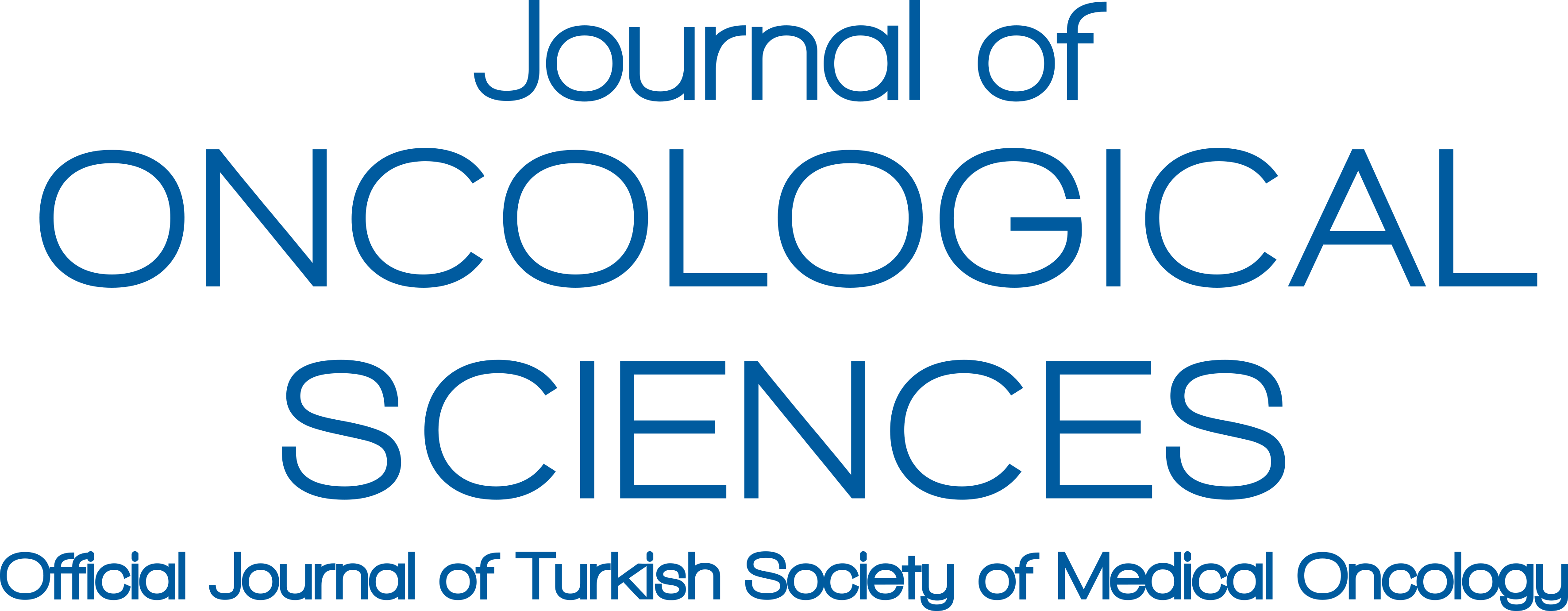Abstract
Objective: This study assessed the efficacy of ixabepilone and compared two regimens of this drug (weekly vs. every 3 weeks)
in patients with heavily treated metastatic breast cancer during daily clinical practice. Material and Methods: Between 2012 and 2018, all
cases of metastatic breast cancer treated with ixabepilone were evaluated. Results: We evaluated data from 75 patients diagnosed with
metastatic breast cancer. Eighty-eight percent of patients had hormone-positive Human Epidermal Growth Factor Receptor 2-negative
metastatic breast cancer. Most patients had visceral and bone metastases (65%). Most patients were heavily pretreated; 96% had received at
least three lines of prior chemotherapy in the metastatic setting. The median use of ixabepilone was the sixth line. The objective response rate
was 32%. Patients had a median progression-free survival (PFS) of 4 months, and there was no statistical difference in the PFS of two
chemotherapy regimens (weekly: 3.2 months vs. every 3 weeks: 5 months, p=0.31). Patients had a median overall survival (OS) of 12.7
months, and there was no statistical difference in the OS of two chemotherapy regimens (weekly: 16 months vs. every 3 weeks: 12 months,
p=0.91). The incidence of Grade 1-2 hematologic toxicity events (neutropenia and thrombocytopenia) was 10% in patients on the weekly regimen.
Grade 3 neutropenia was seen in 20% of patients and grade 3 thrombocytopenia was seen in 6% of patients treated every 3 weeks. Conclusion:
This study showed that ixabepilone is effective in patients with heavily treated breast cancer, and weekly treatment is less toxic and
safer than treatment every 3 weeks for these patients.
Keywords:
Breast cancer, metastatic, ixabepilone
References
1Chia SK, Speers CH, D'yachkova Y, et al. The impact of new chemotherapeutic and hormone agents on survival in a population-based cohort of women with metastatic breast cancer. Cancer. 2007;110(5):973-979.
2Siegel RL, Miller KD, Fuchs HE, Jemal A. Cancer Statistics, 2021. CA Cancer J Clin. 2021;71(1):7-33. Erratum in: CA Cancer J Clin. 2021;71(4):359.
3Thomas E, Tabernero J, Fornier M, et al. Phase II clinical trial of ixabepilone (BMS-247550), an epothilone B analog, in patients with taxane-resistant metastatic breast cancer. J Clin Oncol. 2007;25(23):3399-3406.
4Vansteenkiste J, Lara PN Jr, Le Chevalier T, et al. Phase II clinical trial of the epothilone B analog, ixabepilone, in patients with non small-cell lung cancer whose tumors have failed first-line platinum-based chemotherapy. J Clin Oncol. 2007;25(23):3448-3455. Erratum in: J Clin Oncol. 2007;25(33):5339. Edelman, Mark [corrected to Edelman, Martin J].
5Whitehead RP, McCoy S, Rivkin SE, et al. A Phase II trial of epothilone B analogue BMS-247550 (NSC #710428) ixabepilone, in patients with advanced pancreas cancer: a Southwest Oncology Group study. Invest New Drugs. 2006;24(6):515-520.
6Eisenhauer EA, Therasse P, Bogaerts J, et al. New response evaluation criteria in solid tumours: revised RECIST guideline (version 1.1). Eur J Cancer. 2009; 45(2):228-247.
7Rivera E, Lee J, Davies A. Clinical development of ixabepilone and other epothilones in patients with advanced solid tumors. Oncologist. 2008;13(12):1207-1223.
8Li J, Ren J, Sun W. Systematic review of ixabepilone for treating metastatic breast cancer. Breast Cancer. 2017;24(2):171-179.
9Perez EA, Lerzo G, Pivot X, et al. Efficacy and safety of ixabepilone (BMS-247550) in a phase II study of patients with advanced breast cancer resistant to an anthracycline, a taxane, and capecitabine. J Clin Oncol. 2007;25(23):3407-3414.
10Smith JW 2nd, Vukelja S, Rabe A, et al. Phase II randomized trial of weekly and every-3-week ixabepilone in metastatic breast cancer patients. Breast Cancer Res Treat. 2013;142(2):381-388.
11Cardoso F, Bedard PL, Winer EP, et al; ESO-MBC Task Force. International guidelines for management of metastatic breast cancer: combination vs sequential single-agent chemotherapy. J Natl Cancer Inst. 2009; 101(17):1174-1181.
12Miles D, von Minckwitz G, Seidman AD. Combination versus sequential single-agent therapy in metastatic breast cancer. Oncologist. 2002;7 Suppl 6:13-9. Erratum in: Oncologist. 2003;8(1):127.
13Cardoso F, Spence D, Mertz S, et al. Global analysis of advanced/metastatic breast cancer: Decade report (2005-2015). Breast. 2018;39:131-138.
14Bentzon N, Düring M, Rasmussen BB, Mouridsen H, Kroman N. Prognostic effect of estrogen receptor status across age in primary breast cancer. Int J Cancer. 2008;122(5): 1089-1094.
15Yu KD, Wu J, Shen ZZ, Shao ZM. Hazard of breast cancer-specific mortality among women with estrogen receptor-positive breast cancer after five years from diagnosis: implication for extended endocrine therapy. J Clin Endocrinol Metab. 2012;97(12): E2201-2209.
16Chia SK, Speers CH, D'yachkova Y, et al. The impact of new chemotherapeutic and hormone agents on survival in a population-based cohort of women with metastatic breast cancer. Cancer. 2007; 110(5):973-979.
17El Sayed R, El Jamal L, El Iskandarani S, Kort J, Abdel Salam M, Assi H. Endocrine and targeted therapy for hormone-receptor-positive, HER2-negative advanced breast cancer: Insights to sequencing treatment and overcoming resistance based on clinical trials. Front Oncol. 2019;9:510.



